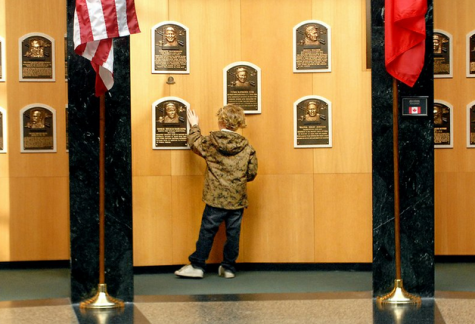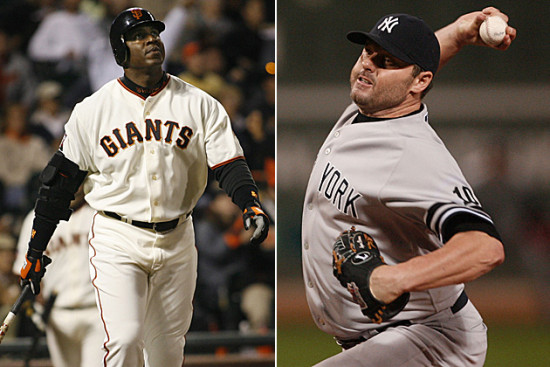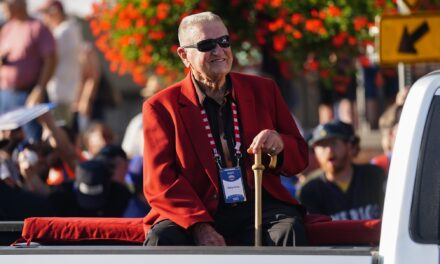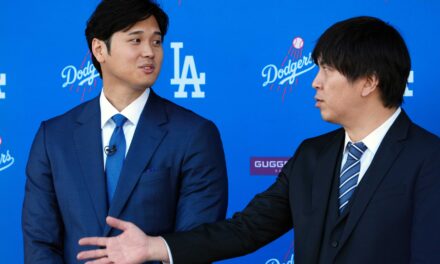
With voting results set to be announced on Tuesday night (MLB Network, 6 PM EST), it’s beginning to look more and more likely that no player on this year’s National Baseball Hall of Fame ballot will gain the required 75 percent of votes necessary for election.
According to the industry’s premier Hall of Fame ballot tracker (a spreadsheet of public BBWAA votes curated and produced by Ryan Thibodaux’s (@NotMrTibbs on Twitter) crack team), only much-maligned right-hander Curt Schilling (74.6 percent) and the PED-tainted candidacies of Barry Bonds (71.8 percent) and Roger Clemens (71.2 percent) have outside chances at election.
As detailed in our last installment of Cooperstown Crunch, as more votes are tallied, historically, these percentages will drop, all but assuring Tuesday’s announcement will be a drama-free affair. But, as many of you are well aware, it’s not the stats that are keeping these three out of Cooperstown’s hallowed halls.
Never in its history has the Hall of Fame’s character clause been more on display during its annual voting process. Jared Diamond of the Wall Street Journal wrote a terrific article this weekend detailing the decisions voters are facing.
The leading vote-getters with an estimated 44.7 percent of ballots made public all have clear demerits, no doubt. Schilling’s transgressions and Bonds and Clemens’ affronts to the game are in two different universes, though both are slippery slopes to climb when taking about enshrinement into Cooperstown.
Yes, there are dozens of unsavory characters in the Hall of Fame already. But history’s mistakes shouldn’t be a green light for voters to make more missteps now.
Bonds and Clemens’ involvement and success found in the Steroids Era cast a disapproving shadow on their respective candidacies from day-one. Schilling’s journey into revile is different.
Schilling, an ardent supporter of the political right who’s been synonymous with controversy since retiring following the 2007 season, arguably has the statistics to gain enshrinement (3.46 ERA, 3.23 FIP, 3,116 strikeouts, 2.0 walks per nine over his 20-year career).
Though, as evidenced by his nine-year stay on the ballot, he hasn’t done himself any favors with his at-times disturbing extra-curricular activities.
Schilling’s documented attacks toward the LGBTQ+ community or his 2016 retweet of a Twitter post supporting the lynching of journalists certainly spoke volumes of his character (there’s more, via web search), but sadly never seemed to be more than a secondary talking point around Hall of Fame season.
This year, Schilling’s public support of the January 6 insurrection at the Capitol in Washington, DC may have sealed his Cooperstown fate and brought the morality factor of the Hall of Fame back into the forefront.
According to Matt Speigel of 670 AM in Chicago, “numerous” BBWAA voters contacted the Hall “hoping to amend their ballots” following the public emergence of the former Red Sox star’s seditious support.
Jon Heyman of MLB Network refuted those reports, stating that one singular voter attempted to change their ballot and was refused the ability to do so.
The truth likely lies somewhere in the middle, but that’s neither here nor there. The fact is that this is an intriguing — and long-overdue — plotline.
Voters with consciences are a great thing for the future of the Hall of Fame, as well as for the future of the game.
Keep it locked onto MMO on Tuesday evening for Hall of Fame voting results.
















